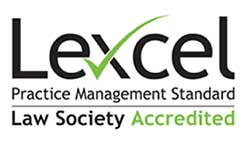The specialist employment solicitors at Wilford Smith have many years of experience when it comes to acting for employers in whistleblowing cases. Whatever your circumstances, we can offer clear, strategic advice to help you manage the fallout from an employee blowing the whistle, protecting your position and reputation while also conducting the most robust defence possible if you have been accused of wrongdoing. Get in touch today.
What is ‘whistleblowing’?
Whistleblowing is when an individual discloses information related to wrongdoing or dangers at a place of work and is more formally known as ‘making a disclosure in the public interest’. In many cases, this involves raising concerns about the conduct of managers or staff, but it is possible that this will relate to the actions of a third party, such as a service provider, supplier or customer.
Whistleblowing differs from complaint raising in that the information disclosed by a whistleblower typically relates to conduct that does not impact on them personally. Instead, this conduct will often impact on the employer or a third party.
What does the law say about whistleblowing?
Provisions relating to whistleblowing are contained in the Public Interest Disclosure Act 1998. Whistleblowers will be offered certain protections if the information they disclose is considered a ‘protected disclosure’. They must reasonably believe that wrongdoing has occurred, or is likely to occur, and the disclosure must be in the public interest. The conduct in question must also relate to a statutory category of ‘failure’. These are:
- A criminal offence or a breach of a legal obligation
- A miscarriage of justice
- A danger to health and safety
- Damage to the environment or a deliberate attempt to conceal this
- Deliberately concealing information relating to one of these categories
Employers and co-workers can be personally or vicariously liable for any detrimental treatment suffered by a whistleblower. Vicarious liability means that the employer can be liable for acts carried out by their staff, even if these actions were undertaken without the employer’s knowledge or approval. This creates serious risks for business owners and those in senior positions and enables whistleblowers to put greater pressure on employers, for example by naming directors of a company as parties to a claim at an Employment Tribunal.
What are employers’ responsibilities in respect of whistleblowing?
While the law does not require employers to have whistleblowing policies in place, implementing such policies and procedures can be beneficial in demonstrating that you are committed to listening to workers concerns. This can also enable your firm to respond more effectively to whistleblowing disclosures, better control risk and resolve wrongdoing more quickly and effectively.
Contact our Whistleblowing Solicitors
We have a well-earned reputation for delivering a uniquely client-focused service. Our employment lawyers will work tirelessly on your behalf to achieve the right result for you, providing legal support that is innovative and responsive. We can provide representation of the highest quality from the outset of any investigation to ensure that you are fully informed regarding your options and the law in respect of whistleblowers at your workplace.
Speak to one of our specialist whistleblowing solicitors today by calling 0808 164 1349 or complete our online enquiry form.



